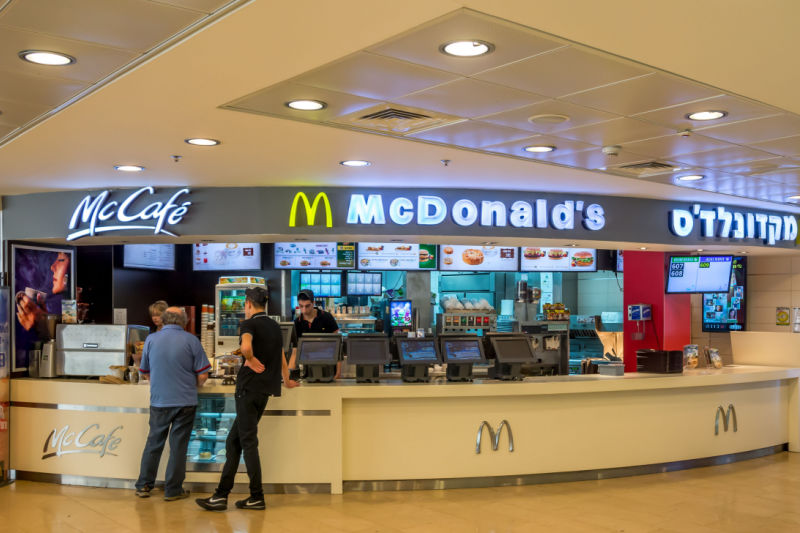Investing.com’s stocks of the week
McDonald's (MCD) reported Q1 earnings and comparable sales that missed analyst estimates, initially sending its shares lower Tuesday before the stock recovered its losses.
As of 10:57 am ET, MCD's stock is up 1% at $276.19 per share.
The fast food giant reported Q1 earnings per share (EPS) of $2.70, slightly below the consensus estimate of $2.72. Revenue stood at $6.17 billion, marginally surpassing the consensus estimate of $6.16 billion.
Comparable sales rose by 1.9%, which is a significant decrease compared to the 12.6% growth year-over-year, and slightly below the expected 2.33%.
In the U.S., comparable sales increased by 2.5%, also down from the previous year's 12.6% and just under the forecast of 2.55%.
The consolidated operating income for the quarter grew by 8%. McDonald’s (NYSE:MCD) said this result includes pre-tax charges of $35 million for the current year and $180 million for the previous year, primarily due to restructuring charges associated with the initiative "Accelerating the Organization."
Excluding these charges, the consolidated operating income would have seen a modest increase of 2%.
"Our global comparable sales growth in the first quarter marks 13 consecutive quarters of positive comparable sales growth with 30% growth over the last 4 years," said CEO Chris Kempczinski.
"As we look to the rest of 2024 and beyond, we remain focused on leveraging the competitive advantages within our Accelerating the Arches plan and growing QSR market share to drive long-term growth."
Following the report, Citi said the top line was better than feared, but the flow-through was lacking.
"Top-line results came in generally better than feared across much of the globe (US in-line, IOM/IDL slightly worse than Street but better than recent investor conversations), but flow-through to EBIT was muted due to weaker global company store margins and higher G&A," the bank wrote.
Meanwhile, analysts noted the largely in-line 1Q results and said they confirm that "global SSS trends have slowed due to a mixture of slowing industry trends, US brand boycott noise, and a narrowing outperformance gap to the industry (at least domestically)."
